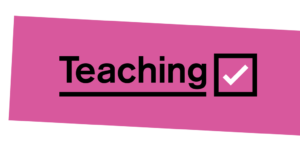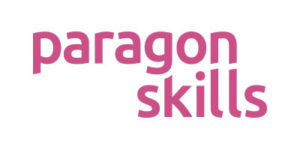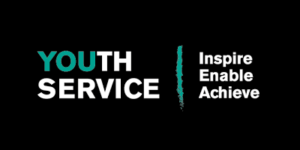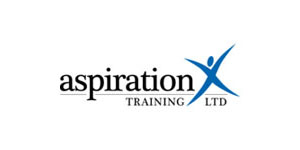IT Trainer careers guide and job profile
Love all things tech? Why not help others feel as inspired by technology as you with a career as an IT Trainer?
Getting into IT Trainer careers
How much money can you earn as an IT Trainer?
These LMI Job Trends give you a sneak peek of how much you could earn starting out for this career, and how much your salary could grow with experience.
Average salary for teaching jobs
Recent labour market information says you can earn on average between £16,000 and £50,000 a year as an IT Trainer in the UK.
Your starting salary can vary because of factors like level of experience, training, location or the size of the company. Your salary as an IT Trainer will increase over time as you build skills, knowledge, and experience.
Childcare & Education Career FAQs & Insights
Is there something you’d like to know about childcare & education careers?
Skills you need to become a IT Trainer
Useful skills to put in your CV:
- Self-belief skills to have the confidence to train others in what you know
- Communication skills to deliver your knowledge and insights in a patient, tactful way that inspires your students and matches their learning levels
- Writing and literacy skills to create instructions, lesson plans and learning materials
Top Skills-boosting Tips
Use every opportunity to practise teaching others, whatever age they are.
Help younger family members with their homework and projects, help your friends with studying, or teach anyone you know something new you find interesting.
People have different ways they learn best, and you’ll build your ability to communicate, present and adapt.
Staying on top of new tech industry developments will be useful too!
- Self-management skills so you can organise, plan, schedule and deliver training on time
- Leadership skills – you’ll be the leader when teaching your students
- To be thorough and pay attention to detail
- To be able to use a computer and the main software packages confidently
How Do You Get These Skills?
Vocational qualifications and work experience will help you build these skills over time.
What Qualifications & Training Do You Need For Teaching Careers?
School, college and training
To train someone else in IT, you have to prove you’re good at IT yourself. You also have to prove you can teach.
To start with, you’ll find it useful to have 4 or 5 GCSEs (or the equivalent) at grades 9-4 (A*-C) including English, maths, and possibly an ICT or science-related subject.
To become an IT trainer you’ll find it useful to have:
- A qualification in teaching or training. A training qualification, like the Chartered Institute of Personnel and Development’s Level 3 Award in Learning and Development, can help to improve your training skills.
- An advanced IT qualification, like a college qualification in IT user skills. This will teach you about using IT systems in a range of jobs.
Some people in this start off as qualified teachers or trainers then add IT to their specialist skills. Other people start off in an IT background, perhaps working their way up from being an IT technician. From there, they might study for a training qualification or gain training skills and experience through working.
It may be helpful if you get the European Computer Driving Licence qualification. This teaches you the main computing skills for everyday work tasks.
You may also need clearance from the Disclosure and Barring Service (DBS).
BTECs
As an alternative to A-Levels, you can do BTECs from the age of 16. There are a number of BTEC subjects you might want to consider if you are interested in becoming an IT Trainer:
- BTEC Information Technology Level 3 Extended Certificate
You’ll normally need 2 or more GCSEs at grades 9-3 (A*-D) or equivalent for a Level 2 or 3 course. If your qualifications are lower than this, you’ll most likely start on a Level 1 course.
University degrees and graduates
You could do a relevant foundation degree, higher national diploma or degree in:
- computing
- business
- human resources
- learning support
UCAS has more information on degree courses and entry requirements.
A-Levels
A Levels are academic qualifications that come after GCSEs. A Levels can be an ideal stepping stone to an advanced apprenticeship, a degree, a job, or going straight into a freelance career.
You’ll normally need GCSEs at grade 4 (C) or above in English and Maths. A GCSE in IT will also be key as it will provide you with the knowledge needed to progress to a higher qualification like an A Level in IT that may also be called Information and Communication Technology (ICT) or Computer Science.
2 to 3 relevant A levels, or equivalent, are usually required to complete a degree.
Apprenticeships
An apprenticeship is a scheme where you train while earning a starting salary. With an apprenticeship (or advanced apprenticeship) you’ll have a paid job with an employer that includes structured training and learning. This training leads to an official qualification that’s recognised by employers as an industry standard.
If you have IT qualifications or skills, you can complete a learning and skills teacher higher apprenticeship.
You’ll need a qualification in the subject you want to teach. Employers will be looking for relevant up-to-date industry experience. You’ll also need to show ability in English, maths and IT.
Anyone over 16 can study for an apprenticeship. You will normally need at least 5 GCSEs at grades 4-9 (A*-C) to study for an apprenticeship, including English and Maths.
T-Levels
T-Levels are a choice for learners after GCSEs alongside apprenticeships and A-levels.
T Levels, an alternative to A-Levels, are qualifications in vocational, technical and hands-on subjects that you can choose to do after GCSEs instead of traditional academic qualifications.
They include a mixture of classroom-based learning and industry placements where you can put your new skills into practice in real-world scenarios.
A T-Level in Digital Support Services could be a good choice for a prospective IT Trainer.
You may need 4 or 5 GCSEs at grades 9 to 4 (A* to C), or equivalent, including English and maths for T Levels.
Career Progression
Where your career could take you...
With time and experience you can either get superior positions or move into different fields.
For example, you could become a lead trainer, department manager or area training coordinator. You could also work for yourself as a freelance trainer or consultant.
With further training, you could also work in further education or move into technical writing, project management, or other IT work areas like publishing or e-learning development.
Get Into Teaching
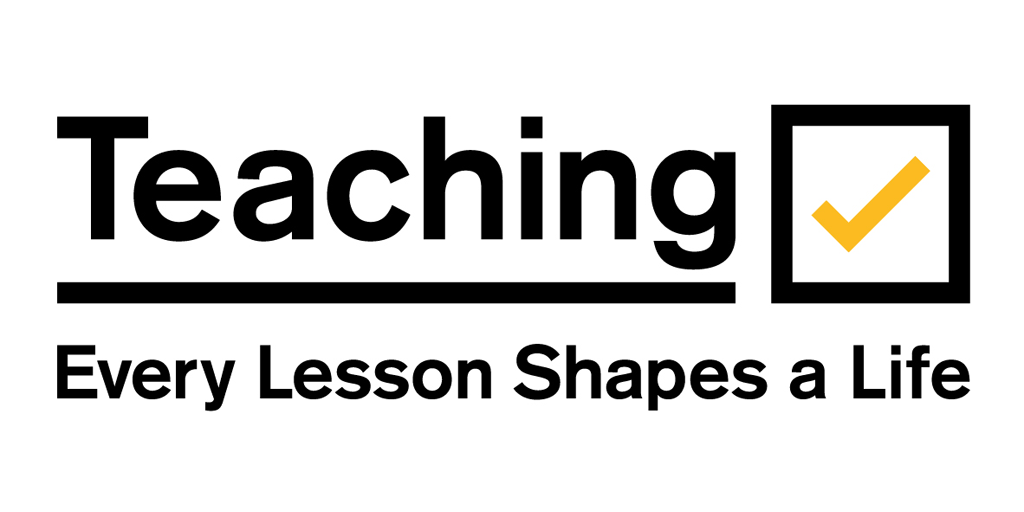
Your favourite teacher started exactly where you are now. You are more of a teacher than you think!
What Work Experience Do You Need For Childcare Jobs?
Work Experience Tips
It can help you decide if this is the right career for you if you have previously done work experience in a teaching environment.
Examples of relevant work experience include:
- Work shadowing (even if it’s just for a day)
- Work placements in a company
- Work experience placements on a college or university course
Your application for this role is more likely to be successful if you already have experience of training people, and of teaching them to use IT software or hardware.
Make sure to note the achievement on your CV if you get offered any team lead responsibilities in your current job. Being able to show employers you can lead a group of people to work for a goal is important.
Work experience tipsVolunteering Tips
Volunteering is a fantastic way to gain experience of working with others, and IT-related volunteering opportunities are also available.
If you’re volunteering with older people, perhaps you can show them how to use aspects of IT and the internet that would make their life easier.
If you are volunteering at a youth community centre, perhaps you could offer to hold small regular groups to train people in IT skills such as basic coding or app building.
You could also do voluntary teaching to help students with disabilities to use IT and assistive technology.
What Does An IT Trainer Do?
Some example daily responsibilities include:
- Designing new training programmes and lessons or changing existing ones to make them more up-to-date
- Making training materials (like lesson activities, homework and coursework, or designing e-learning materials to help students learning online instead of a classroom)
- Assessing the training needs of students and agreeing learning aims
- Delivering training to students
- Assessing student progress and giving them feedback
How To Find IT Trainer Jobs: Next Steps
To find jobs for young people in this role, search on jobs boards for early career roles and opportunities with keywords such as:
- IT Trainer
- Computing Teacher
- ICT Apprentice
You can take a look at our database of local opportunities to see if there are any relevant jobs, work placements, or careers events and workshops to help you get started. Create Your Future!
Local OpportunitiesYou could work in an office, at a training centre, at a college or at a client’s business.
Take a look at the variety of places you could work and train in, and make a pros and cons list for each different environment – you may find one is better suited to you.
This is where work experience is helpful! You can get a taste of different roles, sectors and companies to see what you want from your career.
Get Into Education Careers With Youth-Friendly Employers
These employers and organisations are here to help. They care about your potential and desire to learn, not just your qualifications and experience. They may be able to offer traineeships, apprenticeships, graduate schemes, first jobs, careers advice, wellbeing support and much more.
Childcare & Education Career Tips & Opportunities
Childcare & Education Career Guides
View job descriptions with average UK salary, useful qualifications and a variety of routes into this career.
See All Our Youth-Friendly Employers






































































YES! I Want More Free Careers Help...
So what are you waiting for? Grab your future.





